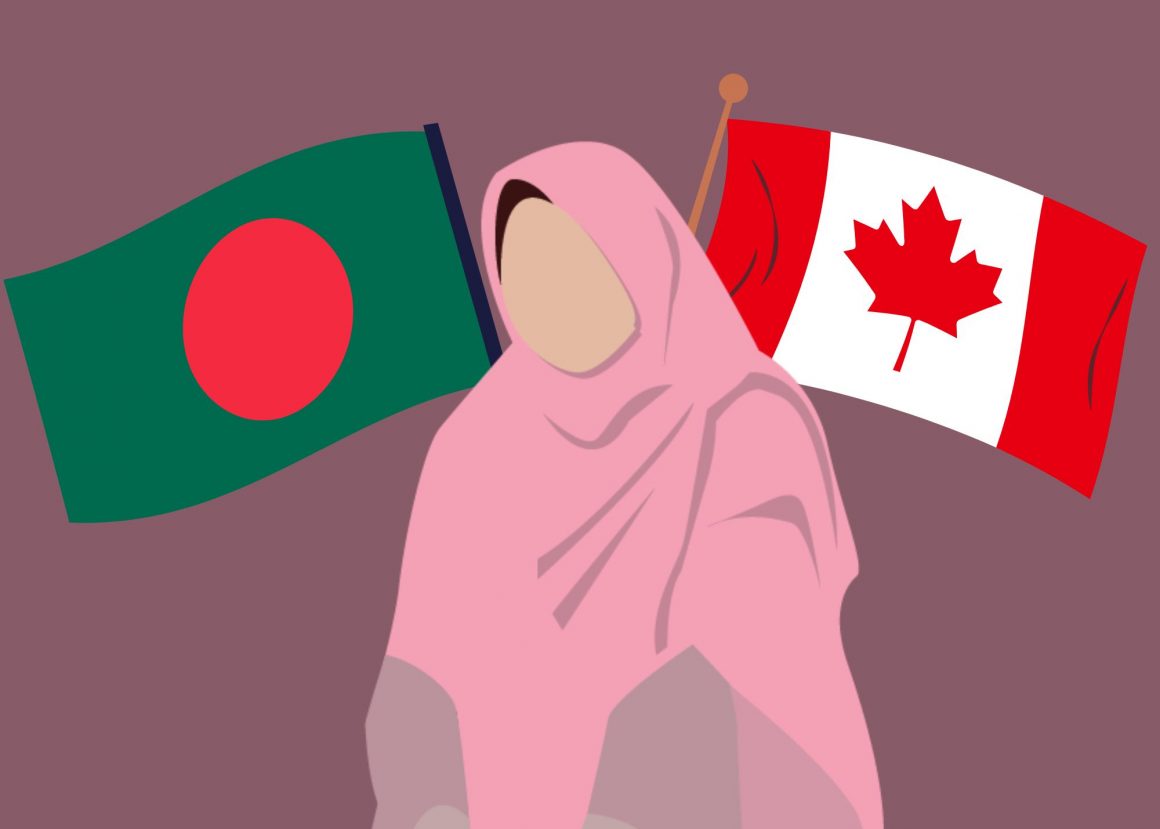
Calling someone whitewashed cuts deep
By Nazeefa Ahmed, October 20 2022—
In middle school, my friends and I were calling our classmates’ homes to sell chocolates and cookies for a class trip to Banff. Though I was not going myself, I memorized the short script and happily obliged. The Garfield keychain I would receive at the end was enough motivation to get through those rejections and angry hang ups.
My friend’s mom was on my list and, since she was Bangladeshi like me, I thought that it would be a great idea to read my script in Bengali, just to flex a little bit. As the phone rang, I mentally translated the words on the page, ready to wow her with my fluency.
What followed was a mess of broken Bengali phrases glued together with English prepositions. I couldn’t put together a proper sentence for the life of me, even though I have been hearing the language at home everyday. The Canadian-English undertone of my speech overshadowed every word I said. It was so bad that she went out of her way to tell me that I can speak English if I wanted to.
Embarrassment followed soon after. Then, interestingly, a sense of loss. My poor Bengali was like a fistful of sand in my hand, and the fine grains were seeping out much faster than I expected them to. It felt as though I was losing something precious, something that would not come back to me if I did not try to preserve it. That hollow feeling has and continues to burden me growing up in Canada as a child of first-generation Bangladeshi immigrants.
I have been called whitewashed multiple times in my life. It is usually a comment laced with humour and sprinkled with an air of superiority. I have heard it from strangers, aunts, uncles, and even from second generation immigrants like myself. Every time, the word would pour salt over a sensitive place in my mind, one that was reconciling the stark differences between the two cultures I inhabited. On one side was the proud Brown heritage of my so-called homeland — tradition, duty, and intense respect for hierarchical familial structures. The other side was individuality without borders — freedom of expression, personal pursuit, and rejection of the norm. I loved both, yet ironically, was not made whole with either on their own.
Frustratingly, the word “whitewashed” would frame this dichotomy as if I was losing something integral to myself, and that the loss was my fault. The fact that my Bengali was choppy was blatant ignorance, rather than a given fact from spending most of my day around English-speakers. Beliefs divergent to my culture were because my parents did not raise me “properly” rather than because of my years in the Canadian education system. Comically, calling someone “whitewashed” blames the individual for societal forces beyond their control.
As minorities in the West, we are very proud of our heritage, our traditions, and our values. We understand the role of strict rules that lead to a well-functioning and stable community. When one of us deviates, then, we have betrayed an unwritten but foundational code of conduct. Suddenly, we become “other,” the “whitewashed” cousin who didn’t listen to her parents. We become the disrespectful child when we stand up for ourselves. And, we don’t just fall down the hierarchy — we are forced to leave it altogether.
“Whitewashed” implies that we have not lived up to or protected the expectations associated with our cultural background, that we have lost value simply because we talk or think or act differently. But none of us live in a bubble, and integration is inevitable.
The fact is that I have integrated into greater Canadian and Western culture, and, unlike some, I don’t see this as a threat to my identity. To me, integration is a beautiful gift, one that gives me the ability to see the world from two unique lenses. I think it is desirable to grow up immersed in a dichotomy of culture and reap the benefits of both.
Children of immigrants are at the interesting position of observing the values of our home culture and outside culture without wholly losing ourselves in both. We notice faults and can place a critical lens over granted assumptions. We have the opportunity to make real changes and advocate against oppressive values. In a globalized world, our perspectives are invaluable. Where is the loss in that?
Therefore, I am proud to be Canadian. I am proud to be a citizen of a country that values multiculturalism and accepts me not despite my differences, but because of them. This patriotism does not come at the expense of my identity as a second-generation Bangladeshi immigrant — the two work hand-in-hand to create an educated global citizen sensitive to the nuances of culture. My dual upbringing has given me a greater perspective of the world and I wouldn’t have it any other way.
This article is a part of our Voices section does not necessarily reflect the views of the Gauntlet editorial board.
